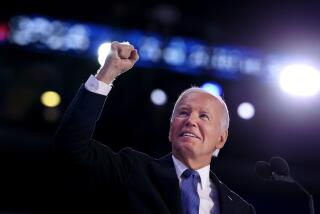Biden returns to South Carolina as he struggles to deliver for Black voters
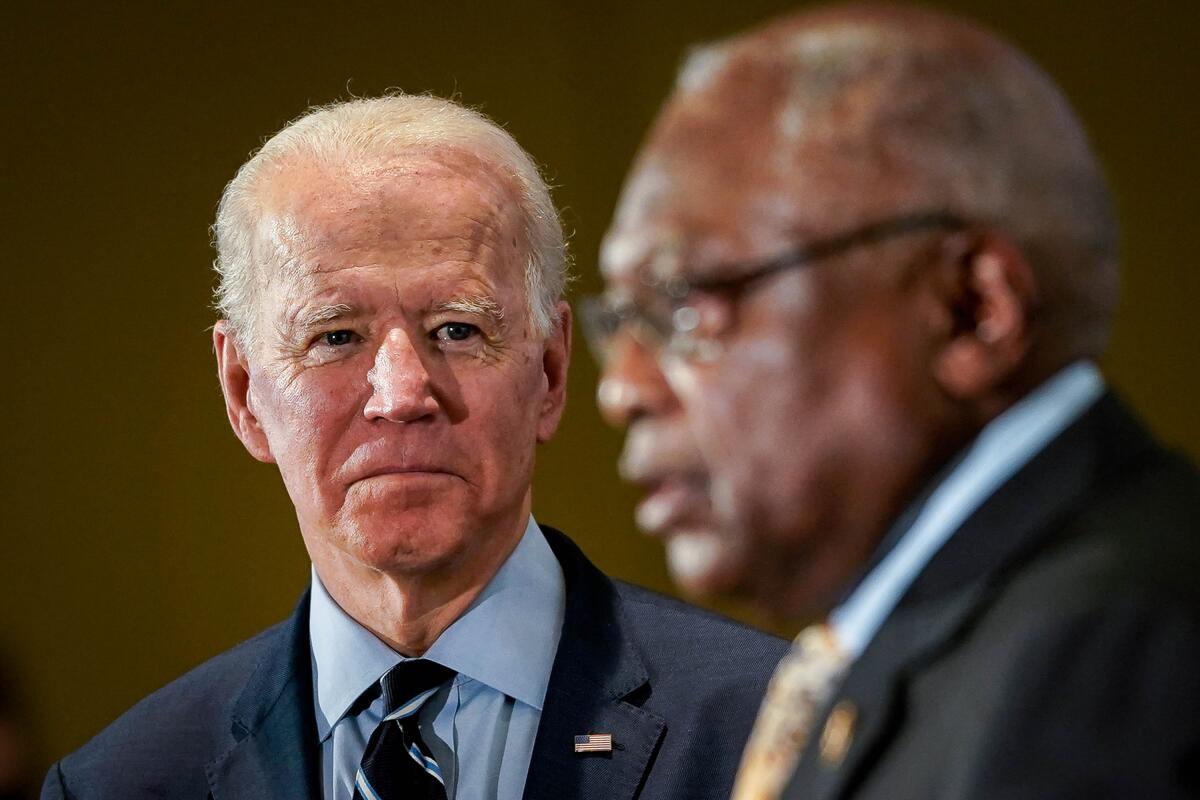
- Share via
WASHINGTON — The Rev. Al Sharpton remembers the reassuring words from President Biden’s victory speech. While declaring victory over President Trump, Biden singled out the African American community to thank for its support.
“They always have my back, and I’ll have yours,” he declared.
The year since has left Sharpton and other activists disappointed. Negotiations over police reform stalled months ago, and little progress has been made on voting rights as Republicans restrict access to the ballot box in several states.
Even though Biden appears to have increased his focus on voting, speaking Thursday with Senate Democrats, a deal appears out of reach at the moment.
“When are you going to have our backs?” Sharpton asked about Biden in an interview with The Times.
“We’ve got a knife in our back, and we’re bleeding.”
Biden’s relationship with Black voters will be in the spotlight Friday when he delivers a commencement speech at South Carolina State University, a historically Black school. It’s the alma mater of Rep. James E. Clyburn (D-S.C.), whose influential endorsement propelled Biden to victory in the state’s Democratic presidential primary, salvaging his moribund candidacy.
South Carolina was the third state to hold a primary contest but the first with a significant number of Black residents, and Biden’s victory showcased the strength of his decades-long relationship with a crucial Democratic constituency.
An estimated 92% of Black voters cast ballots for Biden over Trump last year, according to the Pew Research Center, and Biden has woven attempts at racial equity into his response to the coronavirus crisis and his efforts to repair the economy.
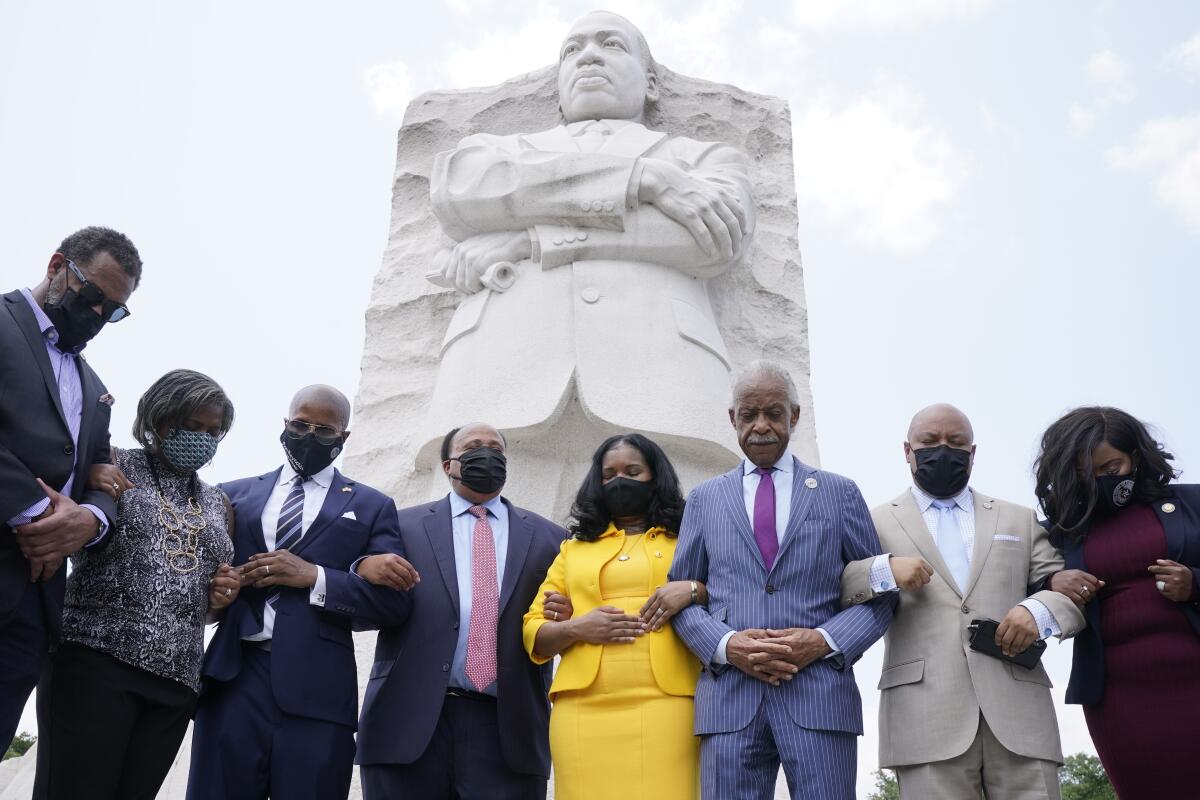
However, polling conducted by HIT Strategies shows Black voters have become less satisfied with the country’s direction, from 72% in June to 64% in the most recent survey, released Nov. 18.
Biden’s approval among Black voters in addressing their needs has fallen from 66% to 48% over the same period.
In today’s sharply divided politics, campaigns are often won and lost at the margins, and creeping disappointment could undermine Democratic candidates in next year’s midterm election.
Melina Abdullah, co-founder of the Black Lives Matter chapter in Los Angeles and director of Black Lives Matter Grassroots, a nationwide organization, warned that although Black voters will continue to support the Democratic Party, “the enthusiasm with which we vote, which means levels of turnout, is going to decline unless we see a real investment and real deliverables for Black people.”
“Black voters turned out in huge numbers to get Biden elected because we wanted Donald Trump out,” she said, “but the promises that were made, I don’t see him having followed through in a really meaningful way yet.”
Biden has spoken often about racism, calling white supremacy the “most lethal threat to the homeland today” and describing Georgia’s new voting law as “Jim Crow in the 21st century.”
He launched his presidential campaign with a reference to the torch-wielding marchers in Charlottesville, Va., in 2017 and said Americans were engaged in “a battle for the soul of this nation.”
“I do appreciate that he’s acknowledged the presence of white supremacy on several occasions and committed to ending white supremacy,” Abdullah said, “but those are words until you actually do something to end white supremacy.”
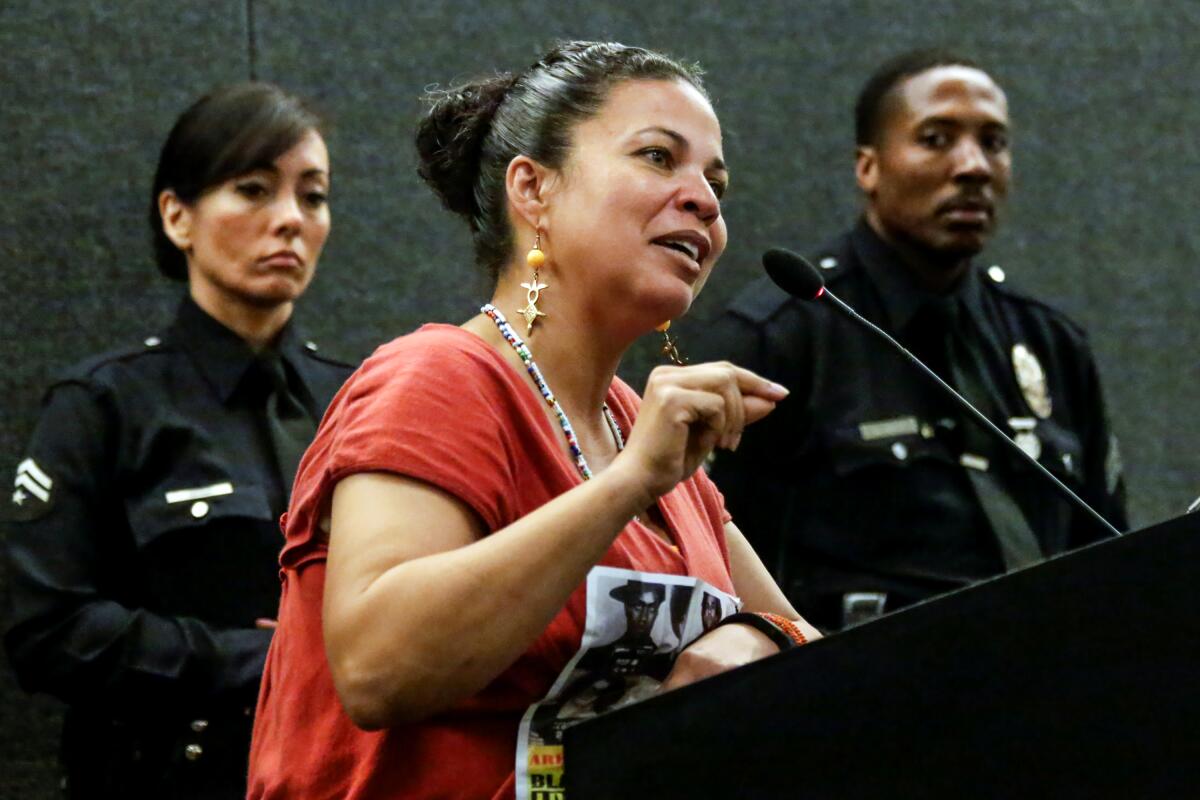
One of this year’s first disappointments was the failure of police reform legislation named for George Floyd, the Black man killed by Minneapolis Police Officer Derek Chauvin in May 2020.
Biden said he wanted to reach a deal by the first anniversary of Floyd’s death, and he promised Floyd’s family that he would fly them to Washington on Air Force One for a signing ceremony.
But a bipartisan group of lawmakers failed to meet that deadline, and negotiations collapsed in September.
A sticking point was a judicial doctrine known as “qualified immunity” that makes it harder to sue police officers for violations such as excessive force.
Clyburn, who serves as the House majority whip, said he wasn’t giving up on the legislation and attended a meeting on the issue just days ago.
“We’re still working on that,” he told reporters in a virtual news conference before Biden’s trip.
He’s also pushing forward on voting rights. However, legislation named for John Lewis, the late civil rights hero and congressman from Georgia, has been blocked by Republicans in the Senate.
Democrats would need at least 10 GOP votes to overcome a filibuster and are engaged in an intense debate among themselves about whether to alter Senate rules to permit the bill to pass with just 50 votes. Another piece of legislation, the For the People Act, has also stalled.
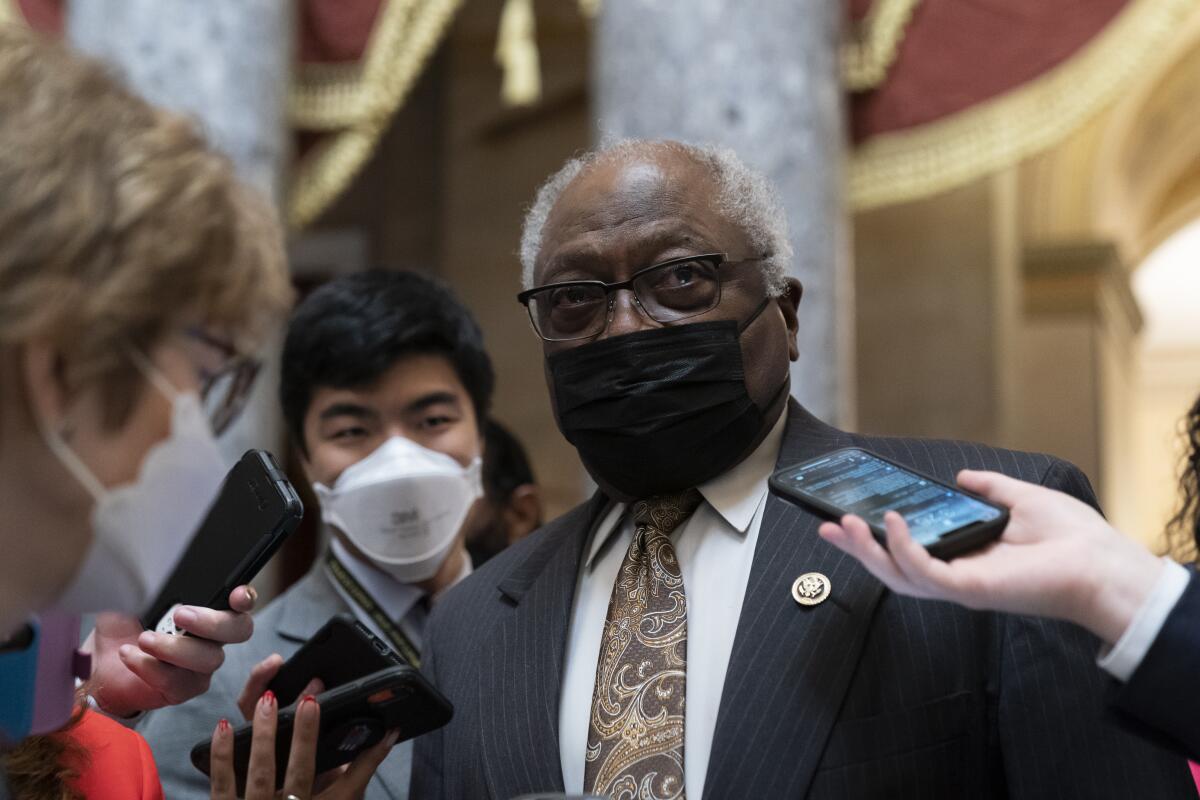
There’s no clear path to pass either voting bill, although Biden seems to have renewed his focus on the issue.
He suggested this week that he would be comfortable putting off progress on a sweeping spending plan, known as “Build Back Better,” which includes policies to expand child care and fight climate change, if Congress would move forward on protecting access to the ballot box.
“There’s nothing domestically more important than voting rights,” he told reporters during a trip to Kentucky to view damage from recent tornadoes. “It’s the single biggest issue.”
Adrianne Shropshire, executive director of BlackPAC, said the lack of progress on voting rights has been particularly troubling for Black voters.
“They blame Republicans the most,” she said. “But they also question Democrats’ commitment to ensuring equal access to the ballot box.”
Clyburn said there’s no reason to judge Biden’s success at this point in his administration.
“Why is it you get a four-year term, but you are judged only on what you do in the first year?” he said. “I don’t understand that.”
Sharpton waved off the difference between Clyburn’s sentiments and his own.
“As a party leader, he’s saying what he should say, and as a civil rights leader, I’m saying what I should say,” Sharpton said.
He added: “It’s our job to push them.”
More to Read
Get the L.A. Times Politics newsletter
Deeply reported insights into legislation, politics and policy from Sacramento, Washington and beyond. In your inbox twice per week.
You may occasionally receive promotional content from the Los Angeles Times.


